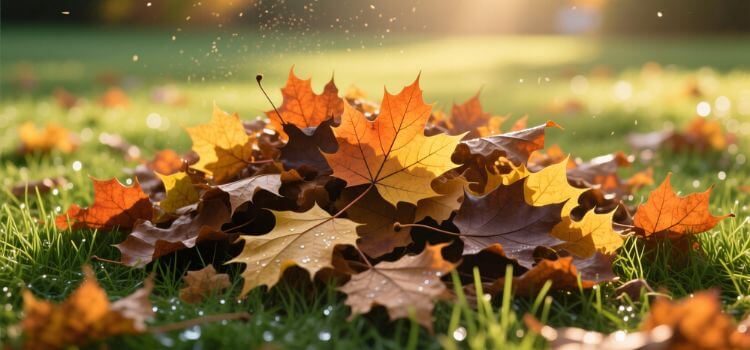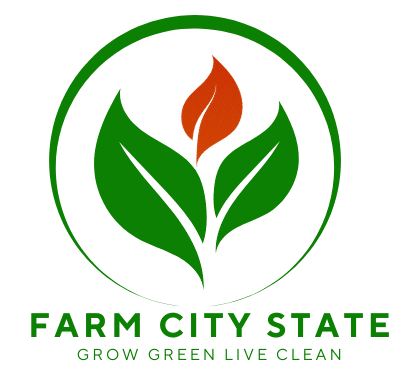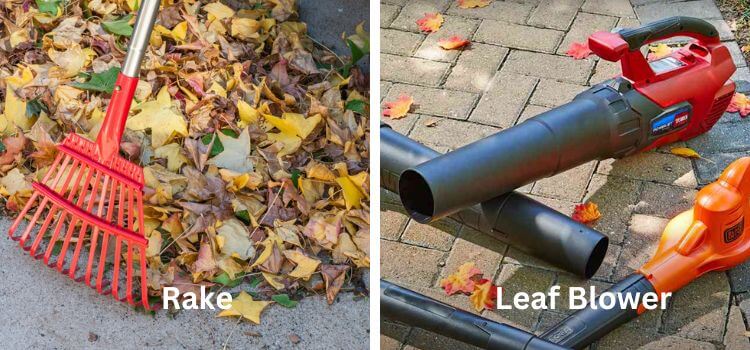As an Amazon Associate, I earn from qualifying purchases.
Keeping your yard clean can be challenging, especially when leaves accumulate quickly. Many people wonder whether a rake or a leaf blower is better for their home. I’ve used both, and each has its own strengths. A rake is quiet, simple, and perfect for small spaces or delicate plants. A leaf blower is faster, more powerful, and saves a significant amount of effort, especially on larger lawns.
In this guide, I’ll compare the Oliynedy Adjustable Metal Leaf Rake with the BLACK+DECKER Electric Leaf Blower. I’ll share features, pros and cons, real-life tips, and even a side-by-side comparison table. By the end, you’ll know which tool best suits your yard and lifestyle. This rake vs leaf blower comparison will make your decision easy, practical, and stress-free.
Rake vs Leaf Blower Details Review 2025
Oliynedy Adjustable Metal Leaf Rake
The Oliynedy Adjustable Metal Leaf Rake is a lightweight and durable garden tool designed for easy cleanup of leaves and debris. Its expandable head adjusts from 8 to 17 inches, making it perfect for tight spaces and expansive lawns. The long, adjustable handle (30–58 inches) ensures comfortable use for people of all heights. Made with heavy-duty metal and a rust-resistant finish, this rake is ideal for home gardening, yard work, and even camping. Easy to assemble and store, this versatile tool helps keep your outdoor spaces neat.
I started my yard-cleaning journey with the Oliynedy Adjustable Metal Leaf Rake, and I was impressed by its simplicity.
Features
- Expandable Metal Head: The rake head adjusts from 8 inches to 17 inches in length. The smaller setting is ideal for tight spaces, such as flower beds, while the wider setting is well-suited for lawns and orchards.
- Heavy-Duty Build: Made of 1-inch-diameter metal, painted black to prevent rust and bending.
- Adjustable Long Handle: The handle can extend from 30 to 58 inches, making it suitable for people of different heights.
- Lightweight: Weighs only 16 ounces, making it easy for women, kids, and seniors to use.
- Easy Assembly: The rake comes in sections that screw together in under a minute, requiring no extra tools.
Pros
- Lightweight: Easy to handle for all ages and strength levels
- Adjustable width: Works for both small spaces and wide lawns
- Durable metal construction: Can handle heavy leaves without bending
- Easy to store: Collapsible design makes storage simple
- Budget-friendly: Affordable and good value
Cons
- Manual effort required: You have to do all the raking yourself
- No power boost: Can be tiring for large yards
- Slightly creaky mechanism: Head expansion can feel stiff at first
I found that adjusting the head size to match the area I was raking saved a lot of effort. For flower beds or corners, the 8-inch setting is perfect. For open lawns, the 17-inch setting helps me cover more ground faster. Additionally, I appreciate that I can easily carry it on camping trips without occupying much space.
BLACK+DECKER Electric Leaf Blower
The BLACK+DECKER Electric Leaf Blower (LB700) is a lightweight, corded garden tool designed for fast and efficient leaf cleanup. Its 7-amp motor delivers powerful airflow up to 180 MPH and 180 CFM, making it ideal for lawns, driveways, and patios. Easy to handle and store, this blower provides reliable performance for quick yard maintenance.
Next, I tried the BLACK+DECKER Electric Leaf Blower. For anyone looking to clean up fast, this tool is a game-changer.
Features
- 7-Amp Motor: Powerful motor for efficient blowing of leaves and debris.
- Airflow: Moves up to 180 MPH at 180 CFM, clearing leaves quickly.
- Corded Electric: No battery to charge—plug it in and start working.
- Lightweight Design: Weighs 4.4 pounds, easy to handle for seniors or people with limited strength.
- Included Components: Comes with the blower unit and a blow tube. The cord is not included.
Pros
- Fast cleanup: Moves leaves quickly across lawns, driveways, and decks
- Lightweight: Easy to hold for extended periods
- Reliable power: Corded design avoids battery issues
- Compact: Easy to store in the garage
- Affordable: Great value for the power it offers
Cons
- Noisy: Loud during operation, may require ear protection
- Cord required: You need an extension cord for outdoor use
- Single speed: No adjustable airflow speed for delicate areas
I use the cord retention feature to keep the plug securely in place while working. This prevents the cord from unplugging accidentally. For small yards or patios, it’s perfect. The blower even moves leaves off my driveway and out of the concrete cracks in seconds. I found it especially helpful when I had wet leaves that were harder to rake manually.
Leaf Blower vs Rake: Feature Comparison
Here’s a quick visual comparison to help you see the differences clearly:
| Feature | Oliynedy Adjustable Rake | BLACK+DECKER Leaf Blower |
|---|---|---|
| Tool Type | Manual rake | Electric blower |
| Power Source | Human effort | Corded electric |
| Weight | 16 oz | 4.4 lbs |
| Adjustable Width/Speed | 8–17” head | Single airflow speed |
| Ease of Use | Moderate effort | Low effort, fast |
| Best For | Small to medium yards, tight spaces | Medium to large yards, fast cleanup |
| Noise | Very quiet | Loud |
| Storage | Collapsible, easy | Compact, requires shelf space |
| Assembly | 1 min, no tools | Minimal, attach blow tube |
Who Should Buy Which Product?
Here’s my take from personal experience:
- Oliynedy Rake: Perfect for those who like quiet, manual control. Ideal for small yards, flower beds, camping trips, and for seniors or kids who want lightweight tools. You get a budget-friendly option that lasts for years.
- BLACK+DECKER Leaf Blower: Ideal for anyone who wants to save time and clear leaves quickly. Works well for driveways, patios, and larger lawns. If you don’t mind a little noise and using an extension cord, it’s highly effective.

FAQs About Leaf Blower vs Rake
1. Can I use a rake instead of a blower for large yards?
Yes, but it will take more time and effort. A rake is manual, so for large areas, the blower is faster.
2. Are leaf blowers noisy?
Yes, corded blowers like the BLACK+DECKER can be loud. Consider ear protection for long sessions.
3. Is the adjustable rake suitable for kids?
Absolutely. The rake is lightweight and easy to handle, even with supervision for children.
4. Do I need an extension cord for the BLACK+DECKER blower?
Yes, the blower is corded and does not include a cord. Ensure you have an outdoor-rated extension cord.
5. Which tool is better for flower beds?
The adjustable rake is ideal because it allows you to work carefully around plants without damaging them.
6. Can the blower move wet leaves?
Yes, the 7-amp motor can handle wet leaves, though it may take slightly longer than dry leaves.
7. How do I store these tools?
The rake collapses for easy storage. The blower is compact and can be hung or placed on a shelf.
Tips for Using and Maintaining Both Tools
Rake Tips
- Adjust the head to match the space you’re cleaning.
- Store it in a dry place to prevent rusting.
- For long-term use, occasionally wipe the metal head with oil to keep it from sticking.
Leaf Blower Tips
- Loop the cord through the retention hook to prevent unplugging.
- Avoid using it in very wet conditions to protect the motor.
- Store in a dry, cool spot to extend motor life.
Verdict: Leaf Blower vs Rake
From my personal experience:
- If you want quiet, precise, and low-cost yard work, the Oliynedy Adjustable Rake is the way to go. It’s lightweight, easy for beginners, and perfect for small to medium yards or tight spaces.
- If you want speed, efficiency, and less manual effort, the BLACK+DECKER Electric Leaf Blower is ideal. It’s powerful enough to clean larger areas quickly and handle wet leaves without tiring you out.
Ultimately, both tools have their place. Many homeowners even find it helpful to keep both on hand—the rake for corners and delicate areas, and the blower for fast cleanup on lawns and driveways.
You can check the latest price on the retailer’s site to see which fits your budget and yard needs.



